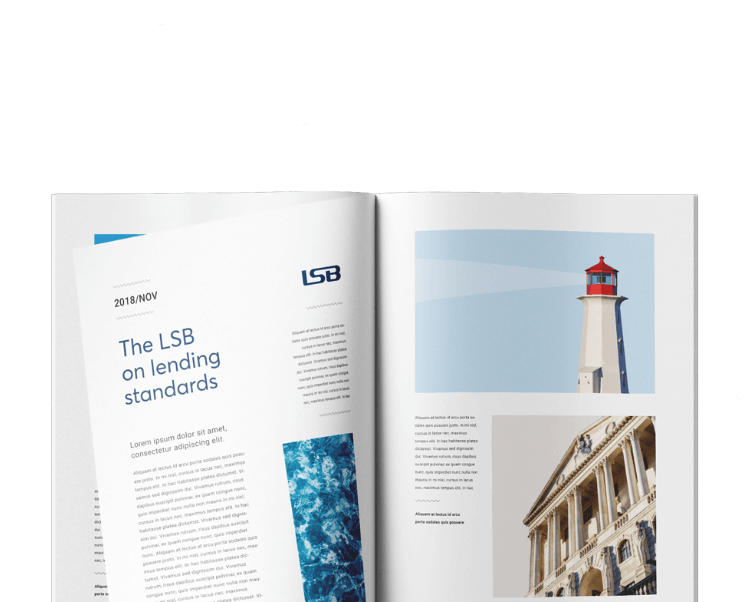SO WHAT’S THE LEGACY?
At the end of this month, I shall step down from Lending Standards Board (LSB) after six months as acting CEO.
This coincides with LSB’s tenth birthday so it is easy to calculate that I have guided LSB’s affairs for only 5% of its life – certainly not long enough to make it sensible to talk about a legacy.
This has, on the other hand, been a seminal six months.
We have done some serious thinking about LSB’s Mission and Strategy for the 2020s which we shall publish next month to coincide with our 10th anniversary event.
We have also seen some of the key elements and insights of that strategy played out in microcosm as LSB has assumed responsibility for the Code[1] which aims to protect consumers from push payment scams.
Let me explain.
We take our mission for the next decade to be to drive fair customer outcomes within financial services through independent oversight. That captures our aim – fairness for customers – and our principal means of promoting that aim – rigorous compliance work.
Our strategy supports that mission. It has four key planks.
First, we want to set and enhance the Standards and Codes which the industry entrusts to us in the light of our oversight work. Our remit has steadily expanded over the last decade as our reputation for rigour has grown. The CRM Code is the latest of a number for which we are now responsible. We are prepared to take on more in future but only where our involvement can add value for consumers and is supported by the industry.
Second, we must continue to provide robust, independent oversight. We have just received the report of an independent review designed to ensure exactly that.
Third, we want to be thought leaders within the industry. We learn a great deal about good practice (and bad) from our oversight work, so we must be effective at sharing those insights. For the same reason, we should also like to encourage new firms to embrace our Standards and Codes.
And, finally, we want to raise the profile of LSB’s work so that senior managers and boards of financial service businesses set store by our findings in designing their services. We also want organisations working with and on behalf of consumers to be guided by our work and findings. After all, LSB endorsement – backed by independent oversight – gives assurance to customers that key customer outcomes will be met.
So how has each plank of this emerging strategy played out as LSB has assumed responsibility for the CRM Code?
Well, we take our ownership of the Code very seriously. We have established an Advisory Group, chaired by Ruth Evans, to support and challenge our custodianship. We have committed to undertake a review of the Code this year.
We are already conscious of important issues with which that review will have to engage. For example, it is clear that some smaller providers who would like to sign up to the Code are deterred from doing so because of process requirements appropriate to the big players – maintaining a 24 hour helpline, for example. So question: can we bring a wider range of providers on board without diluting the rigour so essential to the protection of consumers using bigger firms?
Because of the urgency, we have agreed to bring the review forward to May and will publish the governance arrangements this Spring after consulting the Advisory Group.
Meanwhile, we have just completed this month our first oversight of the Code’s implementation, with a focus on the reimbursement of customers who fall victim to a scam.
This was certainly both independent and rigorous. It involved compliance visits to all eight firms already signed up to the Code, with random sampling of cases handled by those firms under the Code’s provisions.
It was clear from this oversight work that firms were conscientiously seeking to implement the Code. We saw good practice.
But it was equally clear from our overview that that there was inconsistency – perhaps not surprisingly in these early days – and some respects in which, in our judgement, the Code was not yet being fully implemented.
So last week, we acted quickly to provide leadership and held a roundtable for firms (including firms not yet signed up to the Code) to report back on what we had found. We reported on the good practice we had seen, particularly the empathetic handling of customers affected by fraud.
But we also highlighted where improvements needed to be made.
We emphasised, for example, that cases should be reviewed in the round, not driven by internal processes.
We made clear that the existence of a warning was not, in itself, sufficient ground to refuse reimbursement to the customer. Firms needed to consider whether the warning was effective and whether the customer had reasonable grounds not to heed it.
We encouraged firms to ask open questions to identify vulnerable customers who were especially susceptible to scams. We asked for better documentation of decisions.
That leaves raising the profile of LSB in discharging our responsibility for the Code. I confess to some frustration about how little coverage of push payment scams recognises LSB’s role.
Last week’s workshop will, I hope, do something to redress the balance. We also fully intend to ensure that LSB’s voice is heard when push payment scams and the Code are in the headlines or the subject of public and Parliamentary debate.
Perhaps this blog will also help!
[1] The Contingent Reimbursement Model Code for Authorised Push Payment Scams. LSB took over responsibility for the Code in July 2019.









